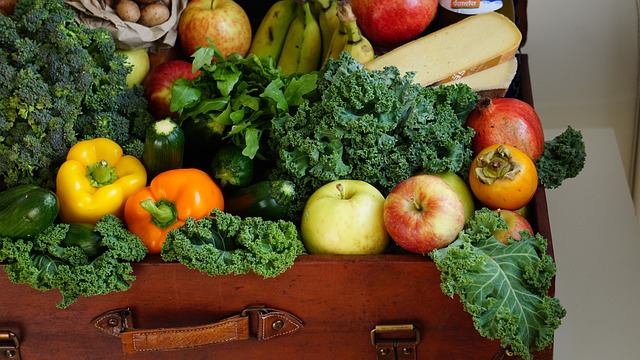Local food delivery services have transformed the direct-to-consumer market by providing fresh, seasonal produce through a streamlined supply chain that supports local agriculture, reduces carbon emissions, and promotes sustainable practices. These services offer meal preparation options that enhance culinary experiences with nutritious foods, while also supporting farmers with stable markets and income. The integration of these services with meal prep enhances community engagement and economic stability in the development of resilient food systems. They provide financial savings for consumers through reduced waste and spending, improve resource allocation and crop yields on local farms, and create jobs across various industry roles, contributing to economic health and resilience by establishing strong localized supply chains. Consumers can enjoy dietary needs and lifestyle preferences with transparency in ingredient sourcing, customizable meal options, and flexible subscription plans, all packaged sustainably to minimize environmental impact. These services prioritize quality, sustainability, and customer satisfaction, ensuring the delivery of healthy, tasty meals tailored to individual dietary demands. Keywords: Local Food Delivery and Meal Preparation.
Local food delivery and meal preparation services have become a cornerstone in fostering direct connections between consumers and local farms, revolutionizing how we access fresh produce and sustainably raised products. This article explores the burgeoning role of these services in supporting sustainable farming practices and their positive economic impact on communities. We’ll delve into the benefits of subscribing to such services, provide guidance on selecting the best options tailored to various lifestyles, and highlight how these platforms are bridging the gap between farm and fork. Join us as we examine the multifaceted advantages of local food delivery and meal preparation in today’s food ecosystem.
- The Resurgence of Local Food Delivery and Its Impact on Sustainable Farming
- How Local Food Delivery Services Are Bridging the Gap Between Consumers and Farmers
- The Economic Benefits of Subscribing to a Local Food Delivery Service
- Tips for Choosing the Best Local Food Delivery and Meal Preparation Options for Your Lifestyle
The Resurgence of Local Food Delivery and Its Impact on Sustainable Farming

Amidst a global shift in consumer behavior, local food delivery services have experienced a remarkable resurgence, reflecting a heightened awareness and demand for sustainable practices. This renewed interest has significantly bolstered local farms, which now benefit from direct-to-consumer sales channels. The implications of this trend are far-reaching, as it not only supports agricultural diversity and food sovereignty but also reduces the carbon footprint associated with traditional supply chains. By opting for meal preparation services that source from nearby producers, consumers contribute to a circular economy, where resources are reused in a way that reduces waste and environmental degradation. These services often offer fresh, seasonal produce, which not only enhances culinary experiences but also encourages the consumption of nutrient-rich foods that are typically more flavorful and supportive of local agricultural health. The synergy between local food delivery and meal preparation is a testament to the evolving landscape of sustainable farming, where community engagement and economic viability are paramount in nurturing resilient food systems.
How Local Food Delivery Services Are Bridging the Gap Between Consumers and Farmers

Local food delivery services have become a vital conduit for direct-to-consumer transactions, fostering a symbiotic relationship between consumers and farmers. These platforms streamline the process of purchasing fresh, locally-sourced produce, thereby reducing the complexity traditionally involved in this supply chain. By offering a selection of meal preparation options, these services ensure that the food delivered is not just fresh but also ready to be enjoyed, catering to the busy lifestyles of modern consumers. This model not only supports local agriculture by providing farmers with a steady market and income but also empowers consumers to make environmentally conscious choices by minimizing the carbon footprint associated with long-distance food transport. The transparency in sourcing and the freshest produce available are key benefits for health-conscious individuals who value the quality of their meals. As local food delivery services continue to expand their reach and offerings, they are becoming increasingly integral in promoting sustainable farming practices and fostering a community-centric approach to meal preparation, ultimately bridging the gap between the farm and the dining table with efficiency and care.
The Economic Benefits of Subscribing to a Local Food Delivery Service

Engaging with a local food delivery service that offers meal preparation options can have multifaceted economic benefits for both consumers and local farms. For individuals, subscribing to such services often translates into cost savings as it eliminates the need for frequent trips to the grocery store, reduces food waste by portioning meals accurately, and minimizes impulse buys of non-essential items. This directs more disposable income back into the household budget. On the other hand, local farms gain from a steady stream of revenue, which helps in long-term planning and investment in sustainable practices. The predictability of demand fostered by these services allows farmers to optimize their resource allocation, leading to better crop yields and quality control. Moreover, as local food delivery networks expand, they create jobs and stimulate the local economy, generating additional income for truckers, drivers, packaging staff, and customer service representatives. This ecosystem not only supports the local agricultural sector but also contributes to the overall economic vitality of communities by fostering a culture of sustainable consumption and localized supply chains.
Tips for Choosing the Best Local Food Delivery and Meal Preparation Options for Your Lifestyle

When integrating local food delivery and meal preparation into your routine, it’s crucial to select services that align with your lifestyle preferences and dietary needs. Opt for a local food delivery service that sources its ingredients from nearby farms; this not only supports local agriculture but also ensures the freshest produce arrives at your doorstep. Consider the variety of meals offered—a diverse menu can accommodate different tastes and preferences within your household. Additionally, look for services that cater to special diets, such as gluten-free, vegan, or keto options, ensuring there’s a suitable choice for every meal.
Evaluate the meal preparation options based on their transparency regarding ingredient sourcing, meal customization capabilities, and the flexibility of subscription plans. A user-friendly interface that allows you to schedule deliveries according to your preference is a significant advantage. Also, consider the packaging and its environmental impact—opt for biodegradable or recyclable materials to minimize your carbon footprint. By choosing a local food delivery service that prioritizes quality, sustainability, and customer satisfaction, you’ll enjoy healthy, delicious meals tailored to your lifestyle without the need to constantly navigate the grocery store aisles.
Local food delivery services have emerged as a significant catalyst in bolstering sustainable farming practices and fostering direct connections between consumers and local producers. By prioritizing meal preparation options that emphasize fresh, locally-sourced ingredients, these platforms not only enhance the economic landscape for farmers but also contribute to environmental sustainability. Consumers stand to gain a wealth of benefits from subscribing to such services, including access to nutritious and seasonal produce while supporting their community’s economy. When selecting a local food delivery or meal preparation service, consider factors that align with your dietary needs and lifestyle preferences. Embracing these services is more than a choice; it’s a commitment to nourishing your table and sustaining the vitality of local farms, making each meal a testament to community and environmental stewardship.
